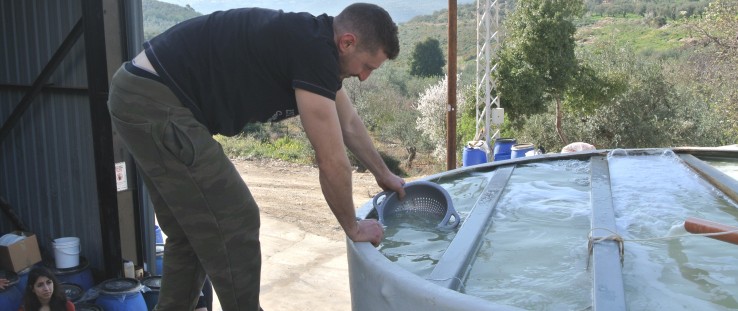 Nowadays, Msallem employees have to check just a handful of large pickling tanks instead of thousands of small barrels.
Nicholas Parkinson
Nowadays, Msallem employees have to check just a handful of large pickling tanks instead of thousands of small barrels.
Nicholas Parkinson
 Nowadays, Msallem employees have to check just a handful of large pickling tanks instead of thousands of small barrels.
Nicholas Parkinson
Nowadays, Msallem employees have to check just a handful of large pickling tanks instead of thousands of small barrels.
Nicholas Parkinson
Ten years ago, Wissam Msallem’s grandfather told him that to be successful in the food processing industry, one needs time, money and patience. The advice still rings true, especially in a country like Lebanon where infrastructure, geography and political instability stifle economic growth.
Msallem Food Tech was founded in 2006 as a family olive and pickling operation in the Koura Valley, a rugged agriculture area hidden in the flanks of Mount Lebanon above the Mediterranean Sea. Following Lebanese traditions and recipes, Msallem prepares olives and pickles cucumbers, carrots, turnips, cauliflower and peppers in 120-liter plastic barrels.
Over the years, the number of pickling barrels gradually grew from hundreds to thousands to tens of thousands. By 2015, these blue barrels were as common as the surrounding olive trees, stacked three deep and covering all available floor space of Msallem’s pickling plant.
“When we reached 100,000 barrels, I couldn’t increase the company’s pickling capacity without also increasing overhead. Adding the small barrels simply stopped being profitable,” he explains.
In 2015, the USAID-funded Lebanon Industry Value Chain Development program approached Msallem Food Tech with a new idea for Lebanon’s pickling industry: large, 10,000-liter fermentation tanks. While tanks have been standard in the United States for years, the concept has yet to take hold in most Mediterranean countries, where food processors still follow traditional methods and fear radical changes in processes. Msallem automatically resisted.
“These tanks have open tops and that frightened us. We also mistakenly assumed large tanks represented more work and higher risk,” Msallem said.
Nonetheless, he eventually gave in, acquired two 5,000-liter tanks. By focusing energy on one large batch of vegetables instead of hundreds of small batches, the company avoids losses while saving valuable time.
Msallem quickly carried out trials on cucumber (both cultivated and wild), turnip, carrots and cauliflower. Trials proved that the tanks reduce operating costs by 30 percent, decrease production losses, generate the same taste and ultimately give pickle experts more control over quality control.
“We were wrong about everything,” he recalls.
USAID then linked Msallem with the Turkish input-supplier Fiberplast, which manufactures food-grade, fiberglass tanks. When the manufacturer learned USAID supports Lebanon’s pickle industry, it agreed to enter the public-private partnership and provide a 25 percent discount for the Lebanese partners.
Msallem purchased five 5,000-liter tanks and five 10,000-liter tanks. In 2016, Msallem Food Tech expects it will increase production of pickled vegetables to over 10,000 metric tons, an increase of 150 percent from 4,000 metric tons in 2015.
Business Sense
After 10 years of measured growth, Wissam Msallem realized this was his chance to take the long-awaited giant leap. In February 2016, he applied for financing to order 50 additional tanks and two high-tech pickle-cutting machines to build the firm’s new processing plant four times as big as the current factory. The investment represents approximately $1.5 million.
“We’ve been patient long enough. This is our chance to expand, and we have to thank USAID for introducing us to the technology,” says Msallem.
Msallem is not alone. USAID supports eight pickling food processors in Lebanon. All together, these companies represent 85 percent of the country’s $34 million pickle industry. To further modernize and strengthen the pickling sector in Lebanon, the program introduced brine recycling techniques to a Lebanese food quality center, and is currently partnering with U.S. engineering firm National Instruments to create an automated carbon dioxide valve to regulate outtake of the gas.
This approach to food system development is expected to ultimately increase exports, production and market access for the country’s vegetable farmers living in rural areas and is part of Feed the Future, the U.S. Government’s global hunger and food security initiative.
By increasing Msallem’s pickling capacity, the food processor will involve additional farms and traders and enable partner farmers to expand production to more than 10,000 metric tons of cucumbers. Msallem currently sources 3,000 metric tons of cucumbers and other vegetables directly from over 50 farms, representing thousands of farmers.
“The tanks reduce the cost of production by 30 percent, so our philosophy is to give 10 percent to the farmers. For them, a 10 percent increase in price is significant because they are working with large quantities,” says Msallem.
The Crunch Test
Cucumbers are found on every table across Lebanon and in most countries around the Mediterranean. The Lebanese, much like most consumers, prefer pickles with a certain degree of crunchiness.
Knowing this, USAID set up farm trials on partner farmer demonstration plots to test 13 varieties of cucumbers and pickled each variety with partners. Besides yield and adaptability, trials measured texture, flavor and crunchiness when pickled.
As a result of the trials, the program introduced a hybrid cucumber variety known as the Artist (Cucumis sativus L), a type of small-growing cucumber referred to as cornichons and picked when young. Its seeds yield 100 metric tons per hectare, nearly twice as much as local cucumbers. Because local cucumbers are not just pickled, but sold fresh, the new variety does not compete with demand for fresh cucumbers within Lebanon.
“The introduction of a new variety could change the entire game for cucumber farmers, guarantee a larger supply for processors, and give Lebanon a new edge on export markets,” explains Elie Sadaka, a food processing expert from USAID’s Lebanon Industry Value Chain Development program.








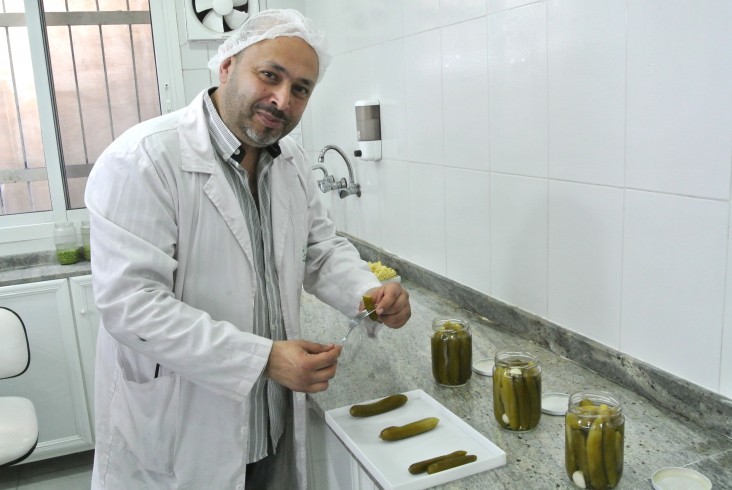
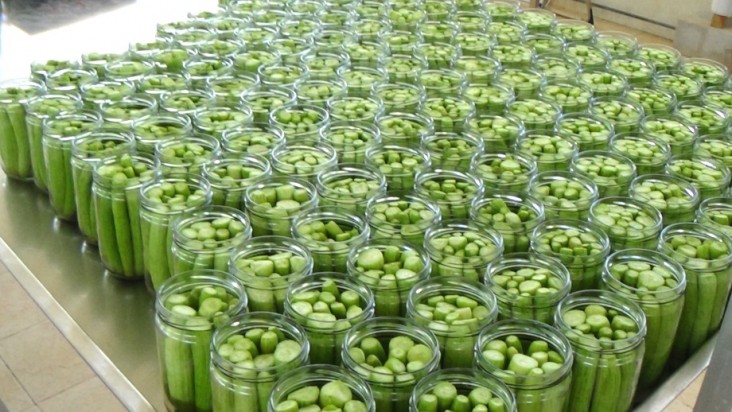
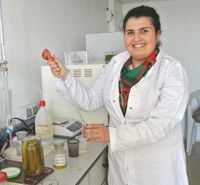
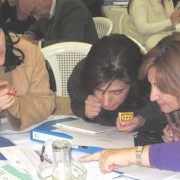
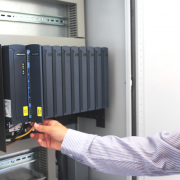

Comment
Make a general inquiry or suggest an improvement.